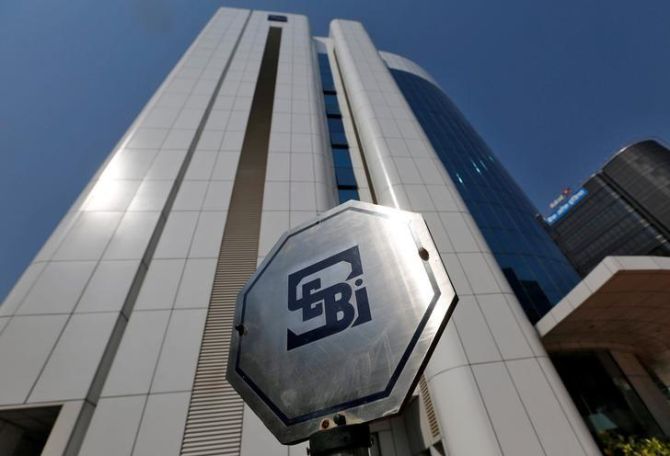Sebi mulls removing differential treatment of investor classes in AIFs
The Securities and Exchange Board of India (Sebi) is mulling doing away with the priority distribution (PD) model in Alternative Investment Funds (AIFs) and introducing in the regulation pro-rata rights (based on the ratio of their commitments) for investors.
Photograph: Shailesh Andrade/Reuters
AIFs are pooled investment vehicles but certain schemes have been observed to be following a differential distribution model where one class of investors, often a junior class, share loss more than the ratio of their contributions in comparison to the senior class of investors.
As the senior class of investors have priority in distribution over the junior class of investors, the profit distribution is done first to these investors while they are compensated for loss out of the residual capital of junior class investors.
In a fresh consultation paper, Sebi has proposed that pro-rata rights to each investor class based on its commitments in the scheme, while making investments and during distribution.
“It is viewed that the PD model, being structurally vulnerable, is prone to misuse and is not in line with the regulatory intent of AIF being a pooled investment vehicle,” said Sebi.
The market regulator has further proposed that the existing schemes of AIFs which have adopted PD model may continue with the existing investments, but will not accept any fresh commitment or make investment in a new investee company.
Earlier in November, Sebi had barred existing funds with PD model from taking fresh commitments until regulatory clarity.
The move is aimed at curbing misuse of the PD model, regulatory arbitrage, loss to junior tranche holders, conflict of interest, and probable ever-greening of loans.
In the consultation paper, Sebi has drawn references from the impact of such tranching in the global financial crisis of 2008.
Legal experts said that the norms for pro-rata rights for investors have been vaguely mentioned in the current norms but are subject to ‘corporate misunderstandings’ and that the proposed changes will be more impacting on debt segment AIFs.
“All investors of the AIF/scheme shall be treated equally with respect to economic rights of the investors i.e., no differential rights shall be provided to investors of AIF/scheme which would affect economic rights of other investors,” said Sebi in one of the proposals to avoid favourable terms for certain investors.
However, the norms for prohibiting differential rights will not be applicable when they are provided on terms with respect to hurdle rate of return, performance linked fee/additional return and management fees.
A working group had also submitted its recommendations on the issue of PD model suggesting that it should not be entirely prohibited given that it helps AIFs in catering to different risk-appetite investors.
However, Sebi in its comments has said that the cost of permitting the PD model outweighs its benefits and the proposed safeguards do not address the concerns of mis-use and mis-selling.
For all the latest business News Click Here

